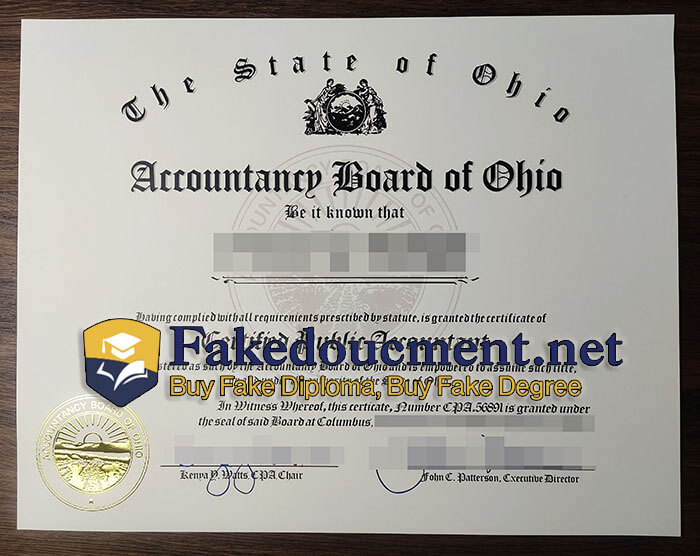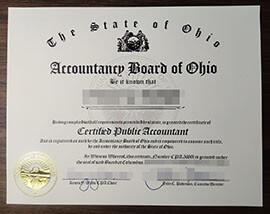
Where to order fake State of Ohio CPA certificate online? Why people would like to buy a realistic State of Ohio CPA certificate online? Which site is best to buy a realistic State of Ohio CPA certificate online?
In Ohio, individuals seeking to become a Certified Public Accountant (CPA) must meet the educational requirements, pass the Uniform CPA Examination, and fulfill the experience requirement for licensure.
The Ohio Accountancy Board oversees the licensing and regulation of CPAs in the state. CPAs in Ohio are required to complete 120 hours of continuing education every three years to maintain their license.
The Ohio CPA license is highly respected and qualifies individuals to practice accounting in the state. CPAs in Ohio may work in public accounting firms, government agencies, corporations, or as independent practitioners.
Overall, the State of Ohio has a well-established and rigorous CPA licensure process that ensures that CPAs in the state are competent and knowledgeable professionals in the field of accounting.
This section contains information useful to candidates for the CPA certificate. For details concerning the documents required to obtain a CPA certificate, please refer to the Obtaining an Ohio CPA License section.
General information for CPA Exam candidates may be found in the CPA Exam Candidate Guide, and applications may be found via the link to CPA Exam | NASBA. CPAES is our agent for CPA Examination administration; applications should be sent to that organization. A tutorial covering the CPA Exam may be found at the AICPA CPA Exam Website link.
A candidate who has met the accounting and business course requirements but not the 120 semester credits may take the CPA Examination if the candidate achieves a score of 670 on the Graduate Management Admission Test (GMAT). Note: Four (4) years of accounting experience will be required for CPA Certification if you were approved under the GMAT. Please consult the GMAT Information link for further information.
Note concerning business course requirement: One course in each of the following subject areas, if begun prior to May 7, 2003, will count as a business course: (1) English or speech, (2) Statistics, (3) Sociology or psychology, and (4) Ethics (taken in the philosophy department). Courses in the above subject areas specifically tailored for business (business communications, business statistics, business ethics) still count as business courses.






